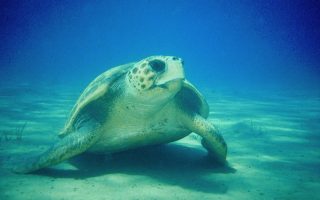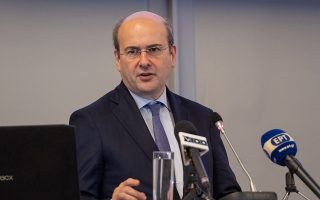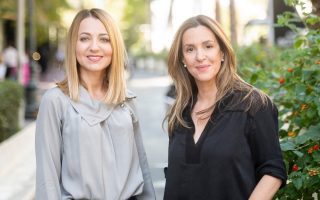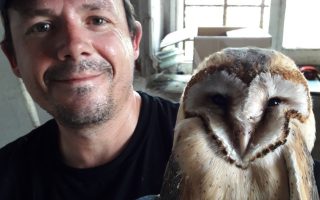Fifth-generation Piraeus fisherman named Europe’s Young Champion of the Earth
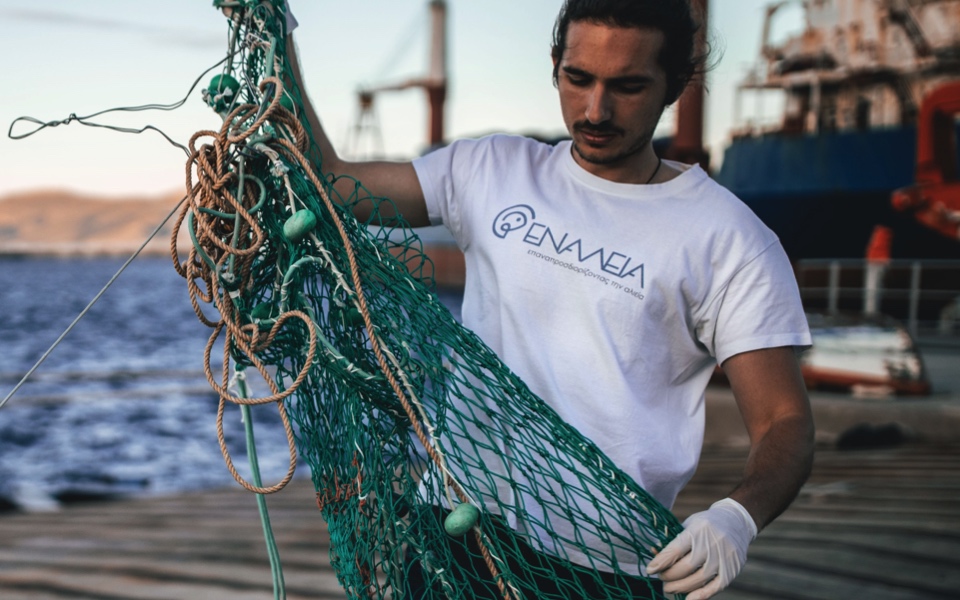
A 26-year-old fifth-generation fisherman from the Greek port city of Piraeus has been named Europe’s Young Champion of the Earth by the United Nations Environment Program (UNEP), a prestigious award that also provides seed funding and mentorship to promising environmentalists around the world.
Lefteris Arapakis is the founder of Enaleia, a startup that trains and incentivizes the local fishing community to collect plastic from the sea, allowing both fish stocks and the ecosystem to recover. It is also prototyping recycling the plastic into fashion merchandise like socks and swimsuits, working with a clothing production firm in Madrid.
Arapakis’ family has plied the waters off southern Greece for five generations, netting the same hake (‘bakaliaros,” a word also, and rather confusingly, used for its cousin, the Atlantic cod) and red mullet (“barbounia”) that have sustained Greeks for millennia. But in recent years, overfishing and pollution, especially discarded plastic, have hammered Greece’s fisheries, with catches in the Mediterranean Sea falling as much as 34 percent in the last 50 years, according to UNEP.
“I got more and more worried about the scarcity of fish and the increase of plastic,” says Arapakis, who trained as an economist. “I was deeply concerned that my father, and now my brothers, could not make a living out of this job, which is what they learned to do and what they love to do.”
Arapakis founded Enaleia in 2016 and today the organization works with 700 fishermen on 145 boats at 12 ports in Greece and Italy, assisting in the removal of an estimated 12 tons of plastic from the sea every month.
“We teach students not just how to fish, but also how to fish so fish can exist tomorrow,” said Arapakis of the initiative, which also comprises Greece’s first professional fishing school.
In its earliest stages, the Enaleia team collected plastic from a much smaller number of boats at the Greek capital’s port of Piraeus and sent it to local plants for recycling. As the volume of the waste material grew, however, it expanded its reach by teaming up with the Netherlands-based Healthy Seas organization, which helps upcycle old fishing nets, so that since its launch, Enaleia has collected more than 80 tons of plastic from the sea.
Arapakis says that while the Covid-19 pandemic has hit his organization and led to the cancellation of much-needed sponsorships, the team has been able to power through and increase collection. He is also optimistic about the future.
“I believe that our generation has much more awareness about marine pollution from plastic and other environmental challenges,” he says.
The other six awards went to materials engineer Nzambi Matee from Kenya for Gjenge Makers, which produces sustainable low-cost construction materials made of recycled plastic waste and sand; Xiaoyuan Ren from China for MyH2O, a data platform that tests and records the quality of groundwater across a thousand villages in rural China in an app so residents know where to find clean water; Vidyut Mohan from India for Takachar, which builds affordable and portable biomass upgrading equipment; Peru’s Max Hidalgo Quinto for building portable wind turbines that harvest up to 300 liters of water per day from atmospheric humidity and mist with Yawa; Niria Alicia Garcia from the United States for the annual Run 4 Salmon event raising awareness about the Sacramento Chinook salmon, its invaluable ecosystem and the people it supports; and Kuwait’s Fatemah Alzelzela for Eco Star, a nonprofit recycling initiative that exchanges trees and plants for waste from homes, schools and businesses.
The seven prize winners, all 30 years old or younger, were selected by a global jury of experts following a competitive public nomination.
“Globally, young people are leading the way in calling for meaningful and immediate solutions to the triple planetary crises of climate change, biodiversity loss and pollution – we must listen,” said UNEP Executive Director Inger Andersen.
“As we enter this decisive decade where we work to cut emissions and protect and restore ecosystems, UNEP Young Champions demonstrate that all of us can contribute, starting where we are with what we have. Every single act for nature counts, and we need the entire spectrum of humanity to share this global responsibility and this profound opportunity,” she added.
